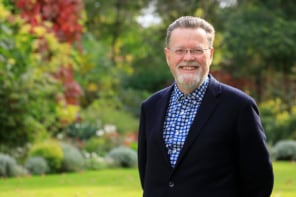
In his campaign to become president of the US, Barack Obama has outlined a plan to boost funding for scientific research and base policy decisions on advice that is “expert and uncoloured by ideology”.
Obama, who accepted the role of Democratic nominee for the US presidency last week, revealed his stance on science and technology on Saturday in response to questions put forward by the ScienceDebate 2008 organization. According to the ScienceDebate team, John McCain, the expected Republican nominee, has said he will answer the same questions in due course.
Although Obama says US innovation “is still the envy of the world”, he admits that the country faces “unprecedented challenges”, such as competing with China’s growing presence in the technology market. Expanding on promises made previously, he says he will double funds allocated for basic research over the next decade as well as provide more support for high-risk, high-payoff research portfolios.
The route to economic growth
The same is true for cash research into defence, which Obama will “put on a path” to double. Recalling the drive to stimulate education in maths and science after the Soviet Union launched Sputnik in 1957, he recognizes the benefit that national-security and space programmes can have on economic growth and innovation. “Our nation is again hearing a threatening ‘ping’ in the distance,” he says, “this time not from a single satellite in space but instead from threats that range from asymmetric conflicts to cyber attacks, biological terror and nuclear proliferation.”
To act on his view that humans are affecting the Earth’s climate, the Democratic nominee insists that the US should “take a leadership role” in designing technologies that reduce greenhouse emissions by 80% below 1990 levels by 2050. He says this can be achieved in part by investing $150 billion over a decade on clean energy research, development and deployment.
Given an Obama administration, scientists could expect their views to be aired by an “impressive team of science advisors”. These would apparently include Nobel laureates, though it is not known who. Obama also plans to introduce the nation’s first “chief technology officer” to oversee the technologies, infrastructure and practices used across all agencies. Moreover, he vows to “restore the science integrity” of the government by only releasing publications that “are not distorted by the ideological biases of political appointees”. This promise will be backed up by bolstering support for whistleblowers who want to publicize instances of malpractice.
Hopes for live debate
In a written statement, Matthew Chapman, president of Science Debate 2008, said: “We are grateful for Senator Obama’s detailed responses and look forward to receiving the same from Senator McCain.” He added that he still hopes the two candidates will agree to attend a televised debate on science policy, which was the original motive of the organization.
ScienceDebate 2008 was formed towards the end of last year by a group of six people who wanted science policy to be debated by the presidential candidates in the run up to the November election. Since then the organizers have gathered the signatures of some 37,000 supporters including university presidents, the representatives of scientific institutions and Nobel laureates.
• You can read Barack Obama’s full responses to the questions posed by ScienceDebate 2008 here.



